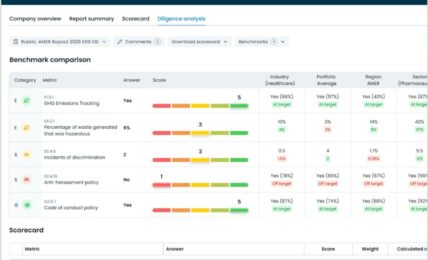British Airways and Phillips 66 announced a new multi-year agreement for the supply of UK-produced sustainable aviation fuel (SAF) capable of reducing lifecycle emissions by over 80% compared to traditional jet fuel.
According to the companies, the SAF will be the first to be produced as scale in the UK.
Air transport has come under increasing scrutiny in recent years as a significant contributor to GHG emissions, accounting for an estimated 2% of global GHG emissions. SAF is seen by market participants as one of the key tools for the industry to address its climate impact, as it generates significantly lower lifecycle carbon emissions relative to conventional jet fuel. SAF is generally produced from sustainable resources, like waste oils and agricultural residues, or even from carbon captured from the air, rather than from fossil fuels.
Sean Doyle, British Airways’ Chairman and Chief Executive, said:
“This agreement marks another important step on our journey to net zero carbon emissions and forms part of our commitment, as part of International Airlines Group, to power 10% of flights with SAF by 2030. The UK has the resources and capabilities to be a global leader in the development of SAF and scaling up the production of SAF requires a truly collaborative approach between industry and government.”
British Airways, which aims to achieve net zero carbon emissions by 2050, said that it will purchase enough SAF from the agreement to reduce CO2 emissions by almost 100,000 tonnes, equivalent to powering 700 net zero CO2 emissions flights between London and New York. The airline’s parent company, International Airlines Group, is also investing $400 million over the next 20 years into the development of SAF.
The SAF will be produced at the Phillips 66 Humber Refinery, located near Immingham. The fuel will be produced from sustainable waste feedstock and will be supplied to British Airways in early 2022, via existing pipeline infrastructure that feeds directly into UK airports.
Darren Cunningham, the Lead Executive for Phillips 66 in the UK, said:
“The Humber Refinery was the first in the UK to co-process waste oils to produce renewable fuels and now we will be the first to produce SAF at scale, and we are delighted British Airways is our first UK customer. We’re currently refining almost half a million litres of sustainable waste feedstocks a day, and this is just a start. Markets for lower-carbon products are growing, and this agreement demonstrates our ability to supply them.”
Phillips 66 has invested significantly over the past year to expand its production fuels from waste feedstocks, as part of a broader energy transition plan to reduce the carbon intensity of its refinery operations and products.
Cunningham added:
“This agreement with British Airways aligns with our strategy to create a refinery of the future, where we’re producing fuels from waste, being a critical part of the electric vehicle supply chain, reducing the carbon intensity of our processes through carbon capture and using hydrogen to power the refinery. It secures long-term business in an ever-changing world.”
The post British Airways Signs Deal for Sustainable Aviation Fuel with 80% Reduced Carbon Footprint appeared first on ESG Today.



